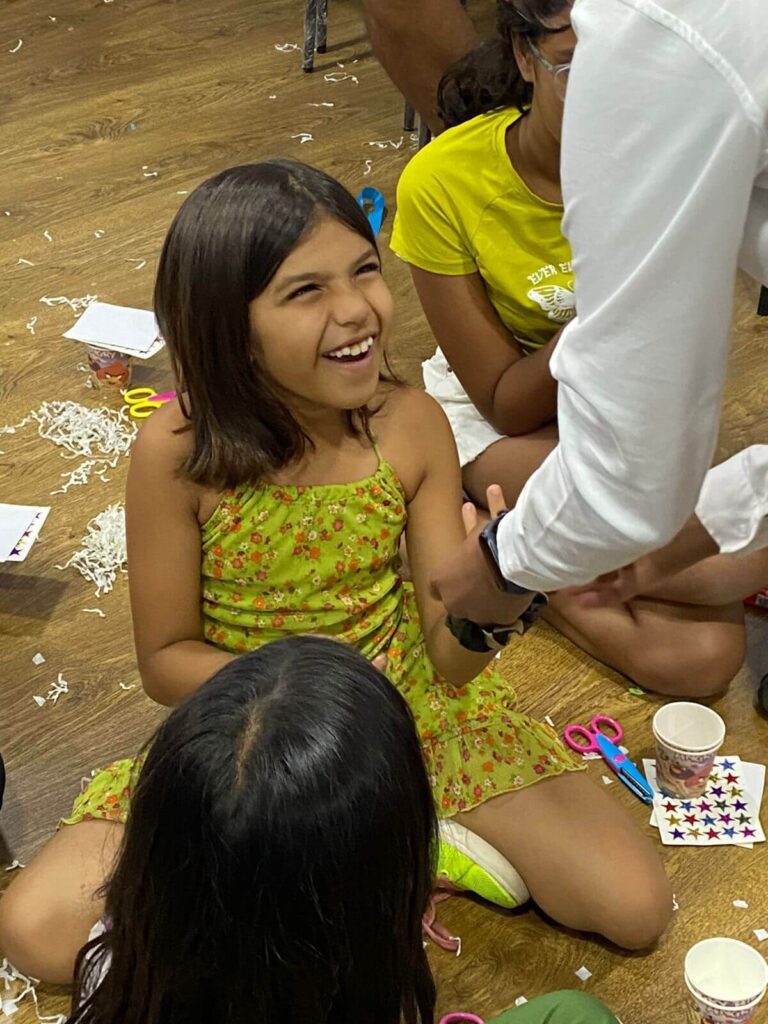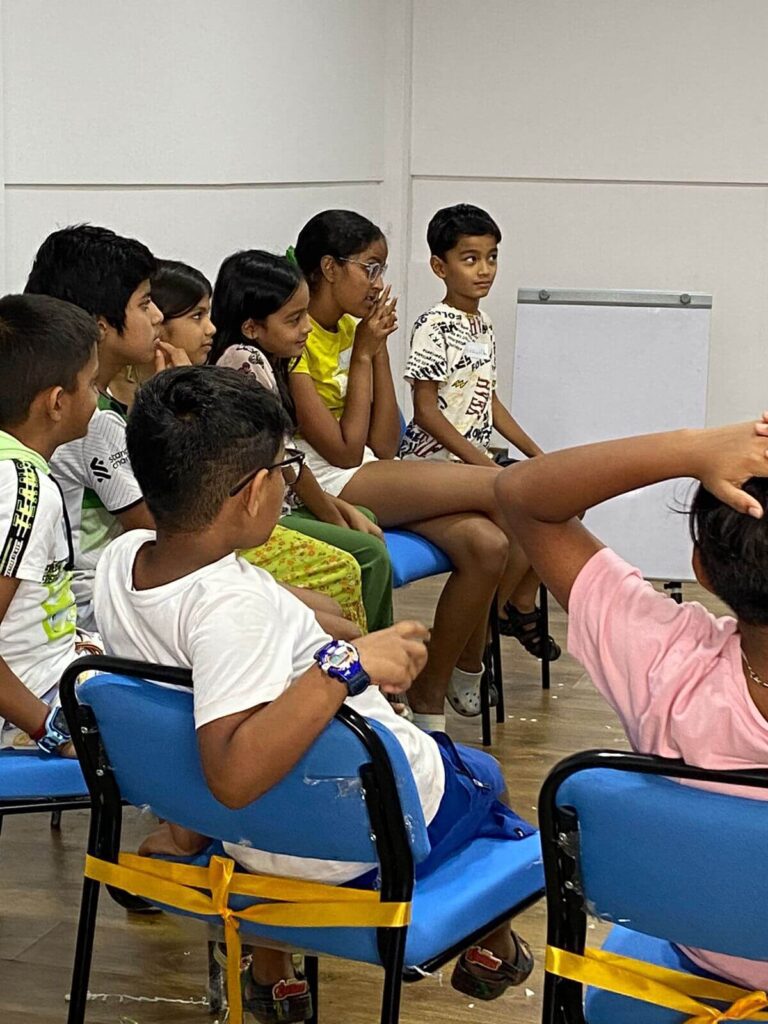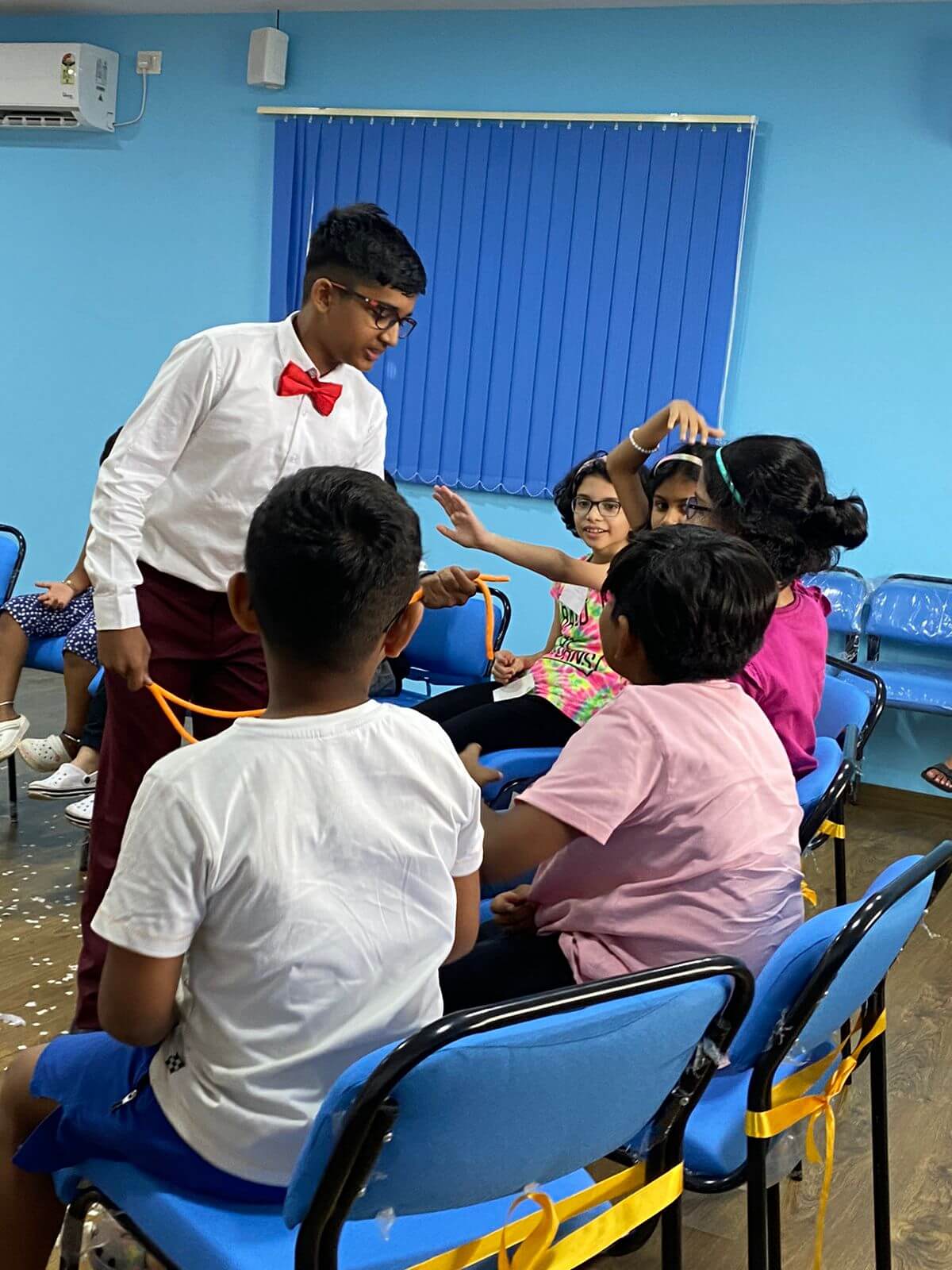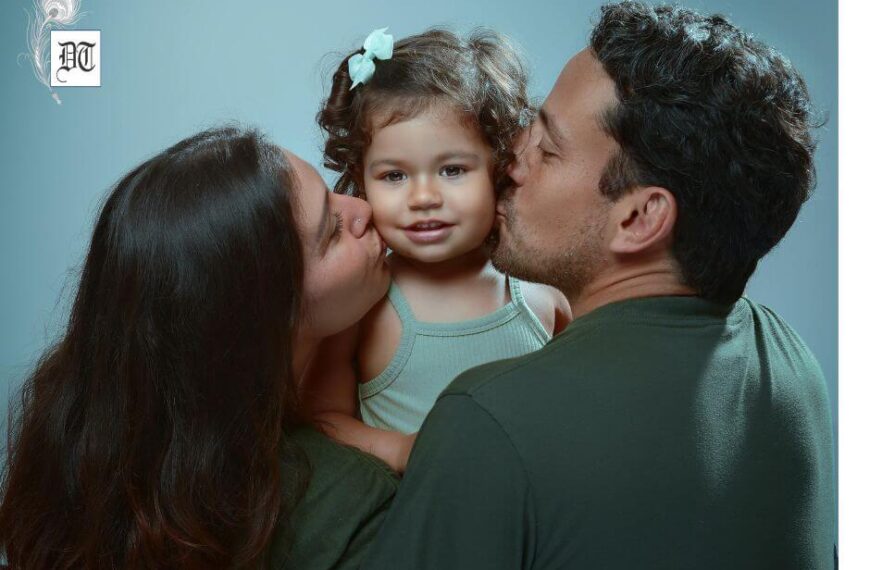Shyamola explores Farah Merchant’s unique programs, like Utka, that help children overcome anxieties through creative expression, addressing school pressures and parental lack of communication, exclusively for Different Truths.
My granddaughter, Tasmayee, is not yet ten. The last time I visited Bangalore, two years ago, she sang a lullaby for me. When I asked her to write down the words for me, she clammed up. “No, I cannot write it down because when I start writing, the words disappear. When I sing, the words flow.”
She recently participated in Utka, a program run by Shishuka, a children’s hospital, by Farah Merchant, a young woman of 38 and mother of a five-year-old. Tasmayee was asked to sing. Farah has been designing various programs for kids to encourage them to come forward and thus develop their confidence and get over their shyness and anxiety. So, for her first public performance, little Tasmayee sang her own song called “Rain.”. Under Farah’s guidance, she was told to ask her audience (all kids, between 6 and 10 years of age) what their passion was.
Family and friends (on Facebook) spoke about her confidence and her ease with the language.

Farah Merchant is a graduate in communication and has been attending frequent workshops in psychology and communication. She has this knack of tapping the potential of each child. She has come a long way in this field of training. In her growing years, she watched her mother, a teacher of many years who trained kids and adults alike. It was her mother who told Farah that people would be her greatest asset. She has worked with corporations and IT people and many other groups, helping them with communication and learning about themselves, and identifying and growing their own potential.
She has a Masters in Neurolinguistic Programming and has attended many ‘Train the trainer programs.”
When Farah was pregnant, she organised a WhatsApp group of nearly 500 mothers in her community. She offered simple solutions to the queries of the young mothers and fathers; she gave them leads about which doctors would help them. It was obviously successful, as the group is still alive.
She started organising workshops for kids and her program, “Merchants of Happiness” (hereafter called MOH) has turned into a veritable star. This is where she asks kids to produce something of their own and sell it at a gathering of other kids and their parents.
Are kids getting depressed?
Is this true? And how has she come to this crucial deduction?
In her own words, “In today’s world, academic institutions, structured learning environments and our homes are not enough to contribute to the wholesome development of the child. All these places have activities, tables, rooms, and curated structured workshops—all in the name of mental wellness. Schools use these rooms to house children who have experienced abuse. or have been broadly diagnosed with issues like ADHD, etc., whose diagnosis may not be clinically true.
“This is pushing kids towards depression. It may not be clinically proven. but it is getting there. Kids as young as six and nine are facing anxiety and a lot of pressure and are not able to express it. They find it difficult to cope with their studies. And the unkindest cut is that reputed schools ask such kids to leave because they have not found the mechanisms to help the little ones.
Dr. Bharath Reddy is a paediatrician who has established the Shishuka Hospital of Bangalore and practices at various other children’s hospitals across the city. Utka (Kannada: full of, characterised by, or showing zeal devoted to a purpose) has been recently started at Shishuka, which to my mind makes it the perfect place for the wellness of the kids to be monitored.
Farah has noticed some pointers for parents who press the panic buttons when they get notices from the schools where their kids are going:
“Your child is distracted’, “He has no energy,” and he “cannot cope with studies.” Then the trips to the doctor begin.

Solutions
According to Farah Merchant, parents can help their kids in simple but wholesome ways. Instead of sending off kids for various extracurricular classes and sitting back, thinking that your child is learning well, parents need to re-evaluate the schools, the education system, and the extracurricular classes. Get the feedback, interact with the teachers, evaluate, and make it a point to encourage kids to speak to you.
Utka is geared up to help the child open and share. It is helping kids accept the company of others and thus help themselves.
The role of parents
Open conversations with kids are very important. Parents shy away from touchy topics like sex and sexual problems, relationships between men and women, violence, bullying, etc. When you keep an open channel for talk, children grow in confidence and will bring their own issues to you. Let there be more socialising amongst the kids’ peers, within the family at least. Please curtail exposure to social media. Do not hand over laptops and phones without monitoring.
Physical activity like dance and music helps kids find their own sweet spot.
As the kids grow, do not talk down to them; do not judge them. They should have the freedom to come and tell you what is troubling them.
Photos by Farah Merchant





 By
By
 By
By
 By
By
 By
By